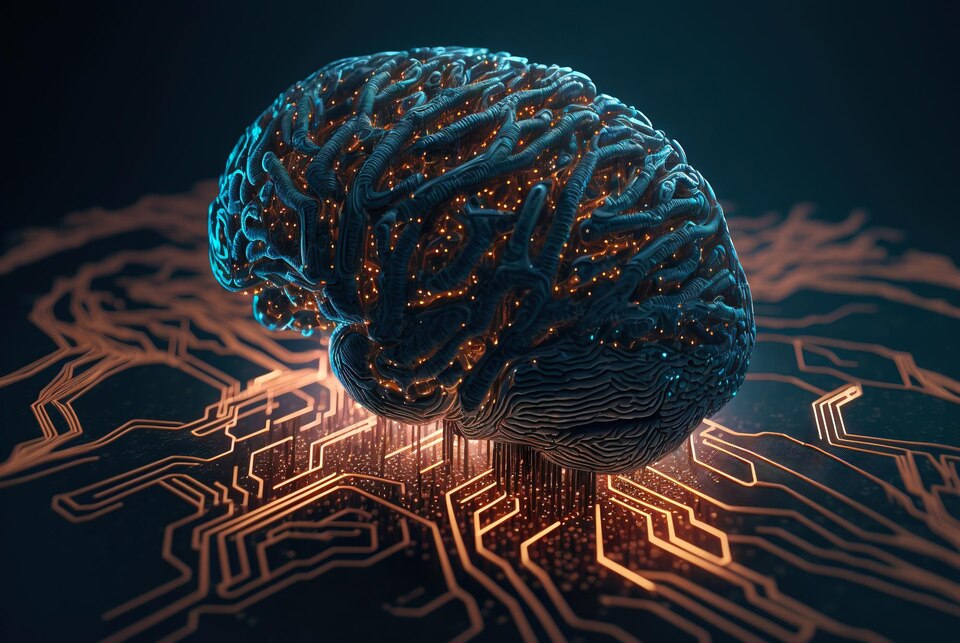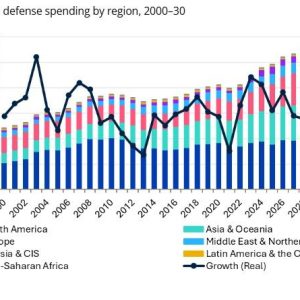The human brain has always been a source of fascination and inspiration for scientists and researchers. As our understanding of neuroscience deepens and technology advances, new frontiers are being explored to bridge the gap between biology and technology. One such cutting-edge research initiative is the merging of human brain cells with silicon chips, a revolutionary endeavour that holds significant implications for national security and various other fields.

Understanding the Human Brain
The human brain is a marvel of complexity, housing billions of neurons that communicate through intricate networks. This vast neural network is responsible for our thoughts, emotions, and actions. Despite remarkable progress in understanding the brain, there is still much to be discovered about its inner workings.
Brain-Computer Interfaces (BCIs) offer a glimpse into the potential of linking our brains directly to machines. BCIs can facilitate communication between the human brain and external devices, opening up possibilities for people with physical disabilities to control computers or prosthetic limbs with their thoughts.
The Intersection of Neuroscience and Technology
At the forefront of the intersection between neuroscience and technology is the concept of merging human brain cells with silicon chips. This cutting-edge field seeks to create a seamless integration between biology and electronics, where silicon chips interact directly with neural circuitry.
Advantages and Challenges of Brain-Chip Integration
The potential advantages of merging human brain cells with silicon chips are immense. Enhancing cognitive abilities, memory augmentation, and accelerated learning are some of the possibilities that could revolutionize national security strategies.
However, such breakthroughs come with ethical considerations and privacy concerns. The integration of brain-chip technology raises questions about the extent of human-machine interaction and the protection of individuals’ thoughts and identities.
Current Research Initiatives
Government agencies and private institutions are investing heavily in research initiatives that focus on the merging of human brain cells with silicon chips. A notable example is the recent national security grant received for research in this field. This grant underscores the importance of the research in safeguarding the nation against emerging threats.
Collaborative efforts between neuroscientists and technologists have led to significant progress. Researchers from diverse disciplines are coming together to unlock the potential of brain-chip integration.
Future Implications and Possibilities
The integration of human brain cells with silicon chips paves the way for a new era in human-machine synergy. As this technology progresses, we may witness a transformative shift in national security paradigms. Advancements in brain-chip interfaces could enhance decision-making capabilities and response times in critical situations.
Conclusion
Merging human brain cells with silicon chips represents a remarkable leap in the fields of neuroscience and technology. While it offers immense potential for national security and human augmentation, it also brings forth ethical concerns that must be carefully addressed. As research continues, society must grapple with the implications of a future where human and machine merge.
FAQs
- What is brain-chip integration?
Brain-chip integration refers to the process of merging human brain cells with silicon chips to create seamless interactions between the human brain and technology. - How can brain-chip integration enhance national security?
Brain-chip integration can enhance national security by improving decision-making capabilities, response times, and information processing in critical situations. - What are the ethical concerns surrounding brain-chip integration?
Ethical concerns include issues related to privacy, identity, and the extent of human-machine interaction. Protecting individuals’ thoughts and data is a critical consideration. - What role does government funding play in brain-chip research?
Government funding plays a significant role in advancing brain-chip research, as it supports essential initiatives and collaborations between institutions. - What could the future hold for brain-chip integration?
The future may witness a transformative shift in human-machine synergy, with advancements in brain-chip interfaces leading to new possibilities in various fields, including national security.
Source: https://bit.ly/J_Umma











